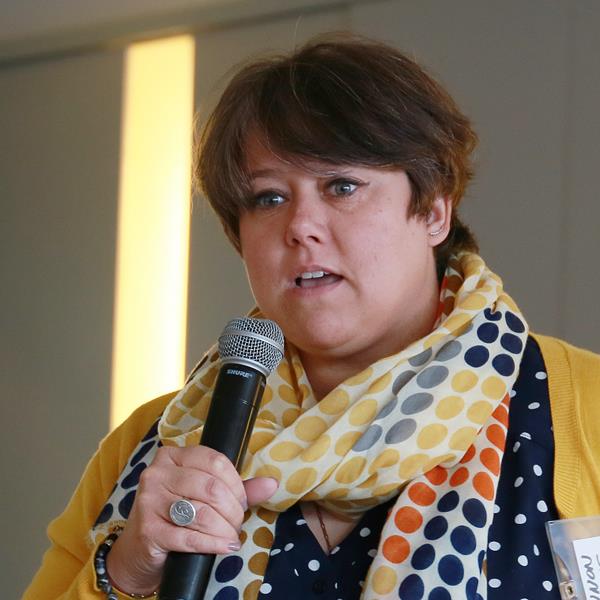Guest Speaker: Shannon Levigne - Mental Illness and Health 

Shannon Levigne is the President of The Rotary Club of Courtice, Ontario, and a mental health advocate who speaks at schools, community organizations and service clubs about mental illness and mental health. She is passionate about educating people about emotional wellness. She shares her survival story in the hopes that others will gain new insight into mental illness and living your best life.
Shannon told us she had a normal and happy childhood growing up in Alberta, but in the mid 1980’s, at age 14, she started to hear a voice. This voice was a male that she did not recognize and it continually told her terrible and negative things. It grew stronger and she became depressed.
At age 15 she told her parents about the voice and her depression. They immediately sought medical attention, but her doctor, and subsequent specialist believed she was making up symptoms to seek attention. Fortunately, her parents believed Shannon, and cared for her and by age 20, they had found a doctor that believed her symptoms were real and prescribed anti-depressants. This helped, and Shannon was able to improve.
In 2001, Shannon was now married with children when her symptoms suddenly got worse. She became deeply depressed and the voice in her head became stronger and more abusive. Fortunately, she was once again able to find a doctor who could help. She was diagnosed with Rapid Cycle Bipolar disorder and schizoaffective disorder and prescribed new medications. Her symptoms improved.
In 2003, Shannon’s husband took a new job and they moved to Ontario. In 2011, her condition started to decline again. It was then that she realized that she had been ill for more than a year, but was not conscious of it. Her depression had become so bad that she was unable to get out of bed. Shannon started to receive weekly treatment at Ontario Shores Centre for Mental Health Sciences. It helped improve her condition. While the voices and depression never went away, they were easier to manage.
Unfortunately, in 2017, things once again started to decline and in the spring of 2018, Shannon returned to Ontario Shores for 5 weeks of electroshock therapy. This made a big difference. While she still hears the voices, they have less effect and her moods are more even and controlled. In January, she will return for more maintenance treatments, but she knows that there is always a chance that her symptoms will get worse.
Shannon wants people to know that mental illness is like any other illness. It’s not something to be feared, or hidden. The best things you can do for someone with a mental illness is to talk about it with them, listen, and offer to help. Just chatting about how someone feels over a coffee can make a big difference. For Shannon, her recovery is never ending. There will always be ups and downs, but she and her family expect it and are prepared when it happens.
Shannon asked everyone to participate in a group exercise that helps people understand what it’s like for her to constantly hear a negative voice. She handed out a long list of things the voice says to her. These included statements like “you are useless”, “you are stupid”, and many more negative comments. Participates were asked to speak about being a Rotarian, while 2 volunteers whispered the statements in their ears. For those that participated, the experience was best described as unsettling, but it helped them appreciate some of what Shannon has to struggle with on a daily basis.

Tim thanked Shannon for her presentation and helping to shed light on mental health issues.
.jpg)